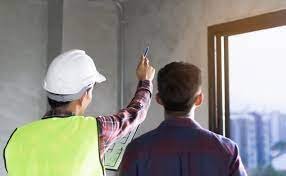Last Updated on March 22, 2024 by Saira Farman
A building inspection also called an inspection of the property, is a visual examination conducted by a qualified building inspector who a local government agency, municipality, or county employs and is certified in one or several fields that qualify them to render unbiased professional judgment on whether a commercial building meets building code standards. Commercial buildings can include warehouses, retail stores, motels, and other structures designed to accommodate business use. It is very important that commercial buildings be inspected periodically for signs of deterioration and to ensure that they function properly. The purpose of the building inspection is to prevent costly violations of building and zoning laws. If a business owner conducts regular inspections of its commercial building, the likelihood of encountering costly violations will be decreased.
Table of Contents
Monitoring Inspections
Most commercial building inspections take a lot of time because the inspector is extremely thorough. The inspector will review the exterior of the building and report findings on the condition of the facade of the building, the quality of the windows and doors and how well they seal. They also look at the walls, roofing system, heating and cooling equipment, landscaping, and other visible surfaces. The inspector typically asks questions about security arrangements and may test the locking mechanisms, emergency vaults, window and door locks, and perimeter fencing. Commercial building inspections will also examine drainage systems and sewer lines, checking for blockages and leaks. Furthermore, if your building uses a building monitoring system, they’ll ensure that it is running correctly.
Interior Inspections
In addition to the exterior of a structure, building inspections may also focus on the interior of the building. Typically, inspectors will conduct indoor inspections to ensure proper electrical installation, structural soundness, and mold and mildew prevention. Inspectors will also check for radon gas leaks, moisture escapes, potential asbestos issues, and testing the air ducts, plumbing, and electrical work. Commercial building inspections will also verify that all required building permits have been obtained and all required licenses and certifications are current.
The Inspectors Report
Inspectors will provide written reports and recommendations to the building owners or managers. The report will be very comprehensive and detail every issue that was identified during the inspection. Typical recommendations include material changes, rewiring, insulation, cooling controls, ceiling treatments, and other issues that may affect the safety and functionality of the facility. However, building inspection reports are normally drafted for the general public and non-owners to view.





















